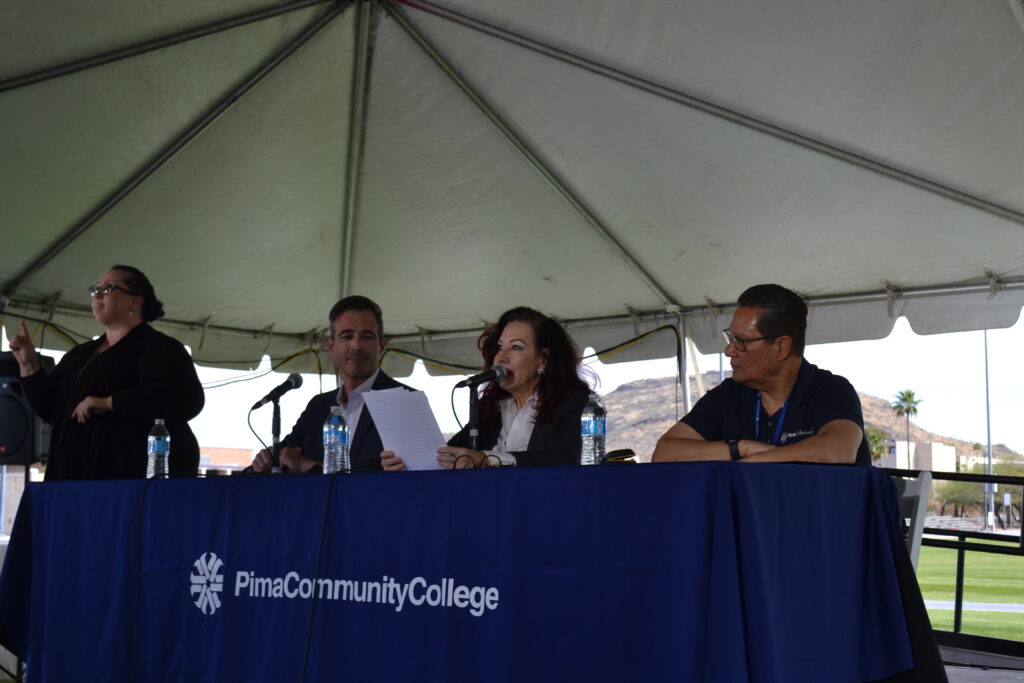
Story and photo by JOSH BAILEY
Pima Post
On March 31, two of Pima Community College’s governing board members held an employee meeting at
the Pima West track field, marking the first time such has been done since the COVID-19 pandemic.
Pima staff and faculty were invited to partake in a public town hall to discuss a variety of topics pertaining to Pima and its strive to educate in a post-pandemic America.
Alongside Chancellor Lee Lambert, Governing Board members from District 1, Catherine Ripley, and
District 2, Demion Clinco, attended.
The administration’s speech discussed adjusting and making difficult decisions in a post-pandemic world.
Other topics discussed included questions and issues regarding faculty and administration pay.
The Pima Post asked Lambert if his pay raises are beneficial to Pima’s success, and whether it is
proportional given the amount of work done by higher administration compared to other institutions in the area.
Lambert offered his stance on the question.
“Leadership matters,” Lambert said. “Yes, all of you (faculty) do the work. But without the vision to keep
moving us in this direction and establishing partnerships – Look, none of this happens by accident. You
want the best talent you can get.”
Lambert, before the compensation (COMP) was paid a yearly salary of $342,000. After board members
approved a 2% increase, this jumped to a salary of nearly $350,000. In addition,
Clinko and Ripley soon took their turns to explain.
“The board has continued to articulate a commitment to becoming a premier institution,” Clinko said. “We say it in our vision statement and continually, and the resources as the chancellor noted, need to be
applied to be able to do that. The compensation study in totality establishes where we are competitively.”
“We’re not gonna make any excuses here- many people are frustrated not knowing when the class
compensation study will be completed,” Ripley said. “But it needs to be done right as our faculty
deserves it. We as staff really need to take care of these folks making just above minimum wage. On the
other end of the spectrum, our community deserves to have a great school and have the best
administrators, buildings, and faculty. We’re striving to do that, but not at the expense of the employees.”
Finishing off the Town Hall were questions on diversity and the enforcement of nondiscrimination policies within the college. The board administrators conceded that Pima had not adequately addressed issues of discrimination in the past. However, they cemented their commitment to non-tolerance of discrimination and urged any discrimination incidents to be reported if they happen.
